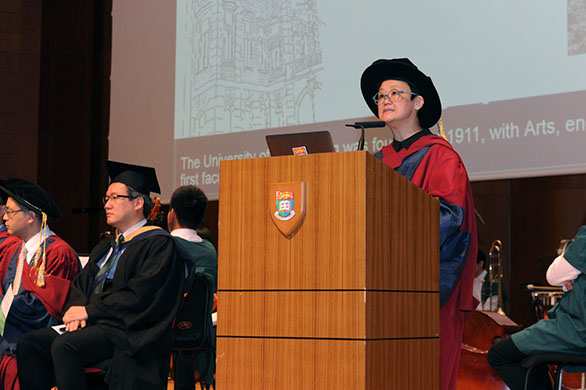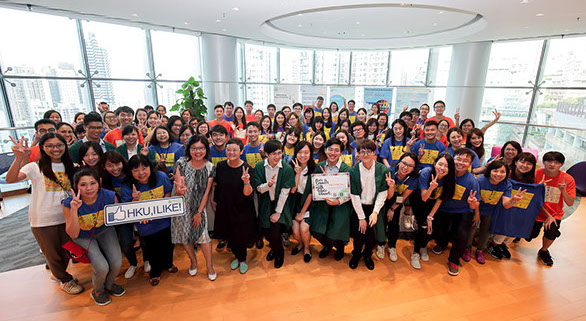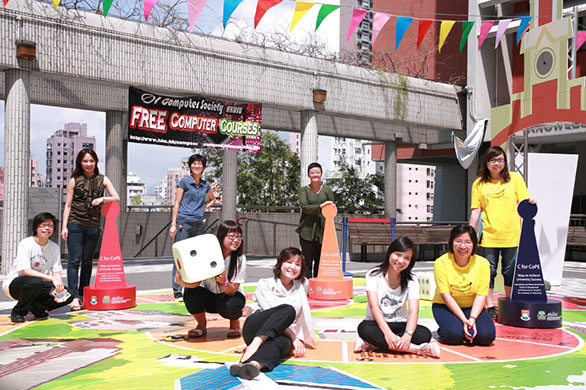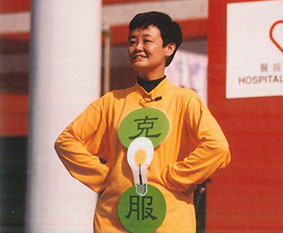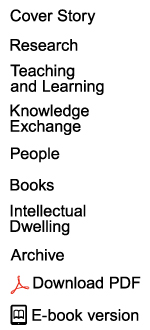Ask Dr Eugenie Leung what her unit, the decade-old Centre of Development and Resources for Students (CEDARS), does and she will tell you about the Tsing Ma Bridge.
The bridge is a major thoroughfare for bringing people and traffic to the airport. But it is not the only way of getting there. Similarly, while CEDARS has typically been seen as the main bridge between students and the University, it should not be considered the only channel of communication.
“We’re a point of contact for communicating with students and reflecting what they need, but it doesn’t mean students necessarily have to go through the Dean of Student Affairs to communicate with management,” she said. “It all depends on where you are. If you are already on Lantau Island, then perhaps you don’t need the Tsing Ma Bridge at all. Or you might want to take a helicopter instead of the bridge. If you know your way, if you know where you are, you can take whichever route you like. But we do provide a direct and simple route.”
Dr Leung’s openness to different styles and different needs in part reflects changing times – the remit of CEDARS has evolved alongside the University’s growing recognition of co-curricular activities as an important part of learning and the need to step up support for students in terms of housing, career and personal counselling, service activities, and special needs. But it also reflects her acceptance of the unconventional.
Using the Tsing Ma analogy, Dr Leung could be said to have walked over the hills, stopping along the way to plant new seeds, before arriving at her destination of HKU.
![]() If you know your way, if you know where you are, you can
If you know your way, if you know where you are, you can
take whichever route you like. But we do provide a direct and
simple route. ![]()
Dr Eugenie Leung
New responsibilities
In early 2016 Dr Leung became the Acting Dean of Student Affairs and had to face new challenges and novel tasks. She expanded the umbrella further by providing the first all-gender toilet on campus within her offices. This attracted media attention, but again sent the message of inclusion and diversity.
Since being confirmed as the full-time Dean in February this year – the first woman to hold that post – Dr Leung said her work is continuing as before: “The only difference is now I am responsible and accountable for everything.”
That includes ensuring the smooth running of CEDARS as a one-stop shop for students so they can get support across a range of areas to support their learning outside the classroom – whether it occurs in the student halls, during service activities, with people from different backgrounds or elsewhere. This reflects the University-wide goal of recognising all learning as important, whether it is credit-bearing or not.
“CEDARS provides a student service plus co-curriculum plus student learning place. We always have student learning in mind,” Dr Leung added.
The indirect route
A clinical psychologist by training, she graduated from the University in the early 1980s and, after working for five years with young offenders in Hong Kong, headed to Canada where she worked for another five years in the reception centre of a maximum-security prison.
She returned to Hong Kong in 1992 and had to wait 10 months for an opening for a clinical psychologist. During that time she volunteered at a hotline and worked overtime comforting people after the New Year’s Eve tragedy at Lan Kwai Fong where 21 people were crushed to death.
In 1993 she joined Castle Peak Hospital, working with psychiatric patients in the out-patient clinic. She stayed there until 2006, during which time she also ran a mental health education project and became a media spokesperson on psychological matters, before joining HKU as the Director of Counselling and Person Enrichment.
It was a sharp turn in a new direction, but Dr Leung said there was a thread running through these different experiences. “I saw a lot of young adults, such as university students, who were depressed and had other problems and I hoped that I could help with early detection and prevention,” she said.
Her activities were not confined to counselling, though. She encouraged whole person development to help students cope with stress, time management and other demands. In recent years she also devoted increasing time to special educational needs support, which covers mental illness as well as physical disability and learning and developmental disability. She has also been involved in HKU’s efforts to make the campus more accessible. “We are sending a good message that we are inclusive and welcoming,” she said.
Dr Leung (second from right in the back row) joined HKU as Director of Counselling and Person Enrichment in 2006 and became Dean of Student Affairs in early 2017.
Dr Eugenie Leung participating in a drama play to promote mental health when she worked in the out-patient clinic at Castle Peak Hospital.
Dr Leung welcomed first-year students at the Inauguration Ceremony for New Students as the Acting Dean of Student Affairs last year.
Dr Leung (fourth from left in the first row) with the staff from the Centre of Development and Resources for Students (CEDARS) and student helpers on the Registration and Academic Induction Day 2017.
.jpg?crc=4236203062)
Students’ Advocate
The career path of Dr Eugenie Leung has taken several left turns, from prisons in Canada to Castle Peak psychiatric hospital to HKU. Now, as the new Dean of Student Affairs, she is helping students prepare to navigate their own paths.
